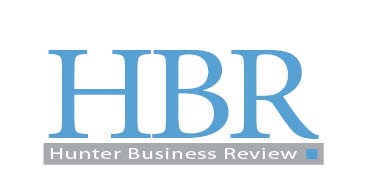The landscape for small to medium businesses has changed significantly over the last ten years. The changes to the work health and Safety Act in 2011 and ongoing amendments have placed increased responsibility on owners and officials in business.
This article aims not to bore you and talk about persons conducting business or undertaking (PCBUs,)or officers and due diligence.
This article is about a wake-up call for small to medium business owners to get their heads out of the sand and take work health and safety (WHS) seriously.
If you don’t, it could cost your business, your house and, worst case scenario, your freedom.
Work Health and Safety Penalties
That’s right; the work health and safety act provides for penalties above $3 million and or five years imprisonment. The introduction in some states of the offence of industrial manslaughter has changed the risk to business owners significantly. Amendments to legislation now prevent an organisation from taking out insurance to cover individual penalty costs.

My key message for business owners is that these penalties are avoidable. All you need to consider is implementing a safe work system that applies to the size and nature of your business.
That’s right, avoidable.
With some forethought, you can prevent prosecution and save your workers and yourself significant anxiety or stress.
This is called doing everything reasonably practicable to reduce the risk of harm to your workers.
Listen to what I am saying, reasonably practicable.
So what does reasonably practicable mean?
The “reasonably practicable” principle is critical in work health and safety (WHS) law.
It refers to the notion that employers have a legal duty to ensure their workers’ health and safety, but only to the extent that it is reasonably practicable.
In other words, employers are expected to:
- to identify hazards
- assess risks
- implement controls to eliminate or minimise those risks.
However, they are not required to take measures that are excessively costly or time-consuming, or that would impose an unreasonable burden on their business.
The principle of reasonably practicable requires employers to balance the potential harm against the costs of taking measures to prevent it.
This involves considering factors such as:
- the likelihood of harm occurring
- the severity of the harm
- the state of knowledge about the risk
- the availability and suitability of measures to control the risk.
Overall, the principle of reasonably practicable places a legal obligation on employers to take a risk-based approach to WHS management, focusing on practical measures to minimise risks in the workplace.
Now if you are reading this and you are saying to yourself,
- We are two small
- This doesn’t apply to me
- We don’t have any risks
I would suggest you wake up and take another look.
You have responsibilities if you run a business employing people or contracting others to work for you.
Seek Advice
If unsure, I advise contacting SafeWork NSW and taking advantage of their free advisory service. If you aren’t comfortable with that, go to www.safework.nsw.gov.au.
If this appears daunting, contact us for a free consultation to provide you with the next step.
Over the last few years, I have learnt a lot, supporting clients to defend against false workers’ compensation claims, cross-claims and negligence claims. You can only do this if you have implemented, yes implemented, a safe system of work.
Please don’t walk away from reading this, and do not review your existing system.
Have you heard the saying,

- You know what you know
- You know what you don’t know
- But you don’t know what you don’t know you don’t know.
Now you might be thinking this guy is nuts.
We are working with businesses that have been sold after 33 years. The new owner has taken over to find no WHS system.
Businesses are handed down to family members who take over without systems. Why? Because no one knew what to do.
Individuals leave one business without a system and take over another business. No system.
I recently spoke with a manager in an organisation we are now reviewing their system.
She said, ” I was reviewing our policies and couldn’t understand them. How could our staff understand them?
The outcome.
She did nothing.
If you are not sure, ask.
This article was published in the Hunter Business Review In April 2023.
